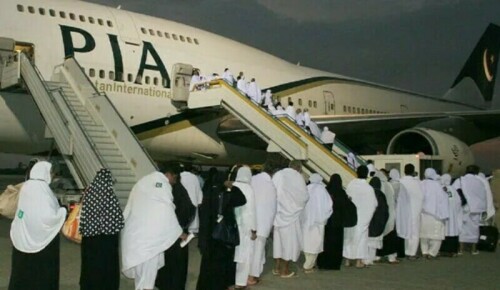KARACHI: Over 250 people, including young children, are in need of donor organs at the Sindh Institute of Urology and Transplantation (SIUT) alone. Many ohters have died waiting. But society is unmoved: senior doctors (often) do not declare brain death or, if they do, they usually don’t talk to the family concerned and seek their consent for deceased organ donation; the clergy do not make any effort to remove misconceptions and encourage people to become cadaveric donor while the media is not willing to ignore its commercial interests and create awareness of the issue free of cost.
These were some of the points highlighted at a seminar, ‘Deceased organ donation: challenges and solutions’, held at the SIUT on Saturday.
The event was organised by the institute in collaboration with the Transplant Society of Pakistan and Human Organ Transplant Authority (HOTA), Sindh.
Regretting lack of a culture for organ donation despite having religious approval from all schools of thought, only five individuals had received cadaver donations since 1985 when organ transplantation started in the country, said speakers.
“To make transplantation relevant and meaningful, it has to reach the downtrodden that constitute more than 85pc of country’s population for whom medical treatment is a luxury,” said SIUT director Prof Adibul Hasan Rizvi while criticising the government, senior medical professionals, clergy and the media for not playing their due role in motivating people for cadaver donation.
The state, he said, was responsible to pay for public health but a large chunk of its resources was diverted towards debt servicing, defence, development and non-development expenses.
Citing some estimates, he said around 150,000 Pakistanis lost their lives every year due to organ failure. Of them, 40,000 died of kidney failure, 70,000 of liver failure and 15,000 of heart failure. Most of these deaths occurred due to non-availability of organs and only a small number of kidney patients managed to get the organ donation from their relatives.
“For organs such as heart, liver, lungs, cornea and pancreas (which can’t be donated in life), deceased organ donation is the only way to save a life,” he informed the audience as he showed pictures of young children and adults who died while waiting for cadaver donation.
Referring to a 2007 study based on information received from the intensive care units of hospitals, Prof Rizvi said around 1,000 brain deaths occurred in Karachi alone annually.
Dr Zarksis Anklesaria, an opthalmologist at Anklesaria Hospital, said 50 corneal transplants were carried out in Sindh every month though the required number was 1,600. “We are at the mercy of Sri Lanka [for corneal transplants]. Officials there recently informed us that there would be a delay in meeting our request for corneas, as they have to entertain a demand from Saudi Arabia,” he said, explaining that the cornea had five layers and now each could be transplanted.
According to him, today India no more requires cornea from Sri Lanka as they have developed two eye banks which are sufficient to meet their national needs. “If cornea is available, the transplant surgery costs only Rs5,000.”
Sindh Health Minister Jam Mehtab Hussain Dahar said the provincial government was in the process to implement HOTA rules and regulations while plans were afoot to make it mandatory upon all hospitals to identify brain deaths and send a report to the authority. The health facilities would also be instructed to have a transplant coordinator, he added.
“This procedure will facilitate cadaver donation. The authority will also obtain consent of family members to make the whole process transparent. I believe the entire society especially the media has to play its role in popularizing the concept of cadaver donation,” he said, adding that an administrator had been appointed for Hota.
Shazia, whose brother Naveed was the first cadaver donor in the country, spoke as to how her family had to make the difficult decision 17 years ago.
Naveed died in a road traffic accident in 1989.
“There was family resistance, but it was my father who stood against all pressures and realised the will of my brother who wished to donate his kidney and both eyes after death.”
The other four cadaver donors were: Shamim Bano (Karachi-2005), Prof Razzak Memon (Karachi-2008), Imran Shah (Islamabad-2010) and 16-year-old Arsalan (Lahore-2011).
In his speech, Prof Pirzada Qasim Raza Siddiqui underlined the need for creating awareness among the youth on cadaver donation.
Mufti Munib-ur-Rehman, Karachi Press Club President Fazil Jamili and Dr Waseem Khan of SIUT also spoke.
Published in Dawn, April 17th, 2016
















































Dear visitor, the comments section is undergoing an overhaul and will return soon.